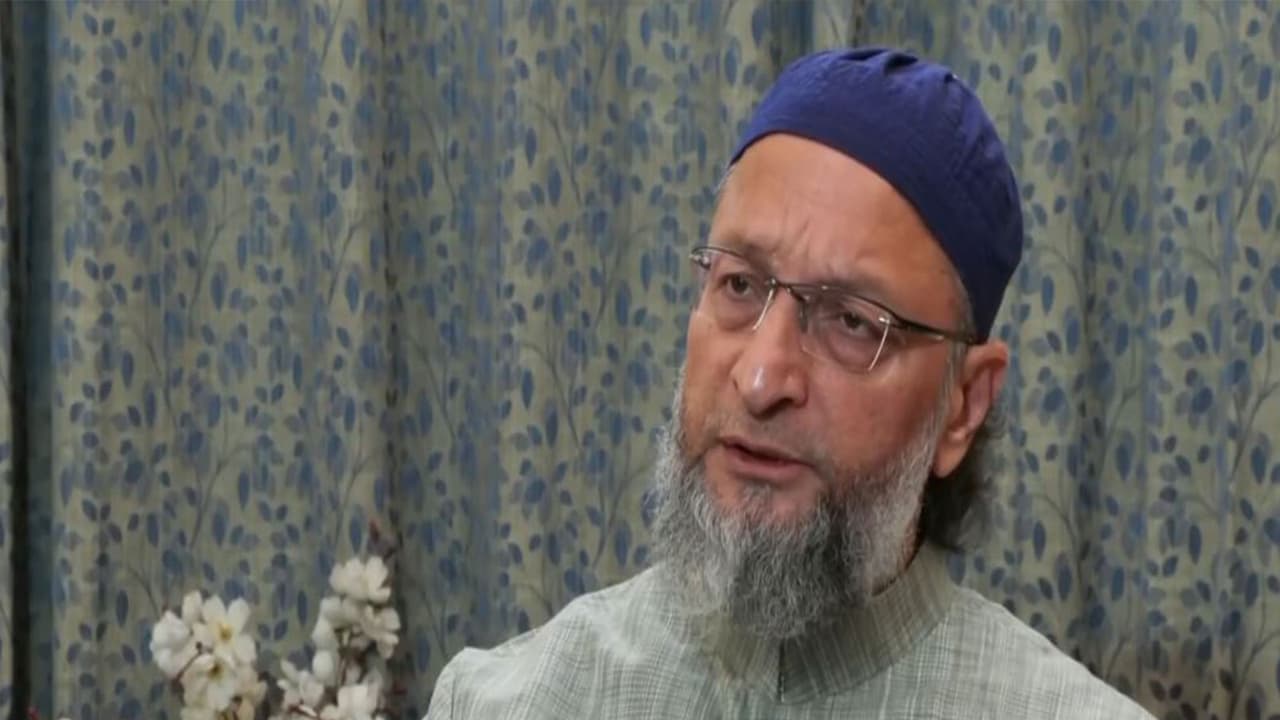Politics
Owaisi Critiques Gaza Peace Plan, Questions India’s Leadership

Asaduddin Owaisi, the chief of the All India Majlis-e-Ittehadul Muslimeen (AIMIM), has expressed strong concerns regarding the Gaza peace plan. In a recent interview with ANI, he criticized the plan for lacking clarity about the future of a Palestinian state and likened the negotiations to a “real estate project.” Owaisi emphasized the need for transparency, particularly regarding accountability for civilian casualties in the ongoing conflict.
He highlighted alarming statistics, stating that approximately 65,000 Palestinians have been killed, including 20,000 children and 15,000 women. Owaisi accused Israel of committing genocide and questioned the effectiveness of international involvement in the peace process, specifically referencing Tony Blair and former U.S. President Donald Trump. He asked, “What will they do in the board that will be formed? Where is the Palestinian Authority?”
Owaisi further challenged the Indian government’s stance, particularly the praise directed towards Israeli Prime Minister Benjamin Netanyahu, who has an arrest warrant from the International Criminal Court against him. “How can the Prime Minister of India praise the leadership of Netanyahu, who leads a completely genocidal regime?” Owaisi questioned, calling attention to the BJP’s narrative that Israel supports India. He argued, “We pay them; no one does it for free.”
Political Context and Responses
The AIMIM leader’s remarks come in the wake of India’s diplomatic missions to various countries, aimed at reinforcing its zero-tolerance policy toward terrorism following the recent Pahalgam terror attack. Owaisi clarified that his party’s actions were not politically motivated but were intended to represent India’s interests. He stated, “We did not go for the Prime Minister but for the country.”
Owaisi also responded to former Home Minister P. Chidambaram‘s comments regarding India’s response to the 26/11 terror attacks. He noted that the government’s strategy has evolved over time, saying, “The government’s strategy at that time was different; today’s strategy is different.” He expressed support for Operation Sindoor, emphasizing the need for vigilance against potential terrorist acts from Pakistan.
He remarked, “We need to remain alert on this issue. If we expect that after conducting Operation Sindoor, these people will not commit any misdeeds, then we are making a mistake.” This statement underscores his belief in the persistent threat posed by Pakistan’s military and intelligence agencies.
Engagement with the Government
Owaisi clarified his relationship with the ruling BJP, stating, “I have no connection with the BJP.” He referenced a recent instance where he was invited to an all-party meeting concerning national security, highlighting the necessity of engaging with government officials for the sake of progress on critical issues. “I’m politically opposed to you, but I want to get work done, and you’re in the government,” he explained.
The AIMIM chief’s statements not only reflect his concerns about the Gaza peace process but also his broader apprehensions about India’s political dynamics and security strategies. His critique of both international and domestic leaders serves as a call for greater accountability and clarity in addressing humanitarian crises and national security.
-

 World5 months ago
World5 months agoSBI Announces QIP Floor Price at ₹811.05 Per Share
-

 Lifestyle5 months ago
Lifestyle5 months agoCept Unveils ₹3.1 Crore Urban Mobility Plan for Sustainable Growth
-

 Science4 months ago
Science4 months agoNew Blood Group Discovered in South Indian Woman at Rotary Centre
-

 World5 months ago
World5 months agoTorrential Rains Cause Flash Flooding in New York and New Jersey
-

 Top Stories5 months ago
Top Stories5 months agoKonkani Cultural Organisation to Host Pearl Jubilee in Abu Dhabi
-

 Sports4 months ago
Sports4 months agoBroad Advocates for Bowling Change Ahead of Final Test Against India
-

 Science5 months ago
Science5 months agoNothing Headphone 1 Review: A Bold Contender in Audio Design
-

 Top Stories5 months ago
Top Stories5 months agoAir India Crash Investigation Highlights Boeing Fuel Switch Concerns
-

 Business5 months ago
Business5 months agoIndian Stock Market Rebounds: Sensex and Nifty Rise After Four-Day Decline
-

 Sports4 months ago
Sports4 months agoCristian Totti Retires at 19: Pressure of Fame Takes Toll
-

 Politics5 months ago
Politics5 months agoAbandoned Doberman Finds New Home After Journey to Prague
-

 Top Stories5 months ago
Top Stories5 months agoPatna Bank Manager Abhishek Varun Found Dead in Well









